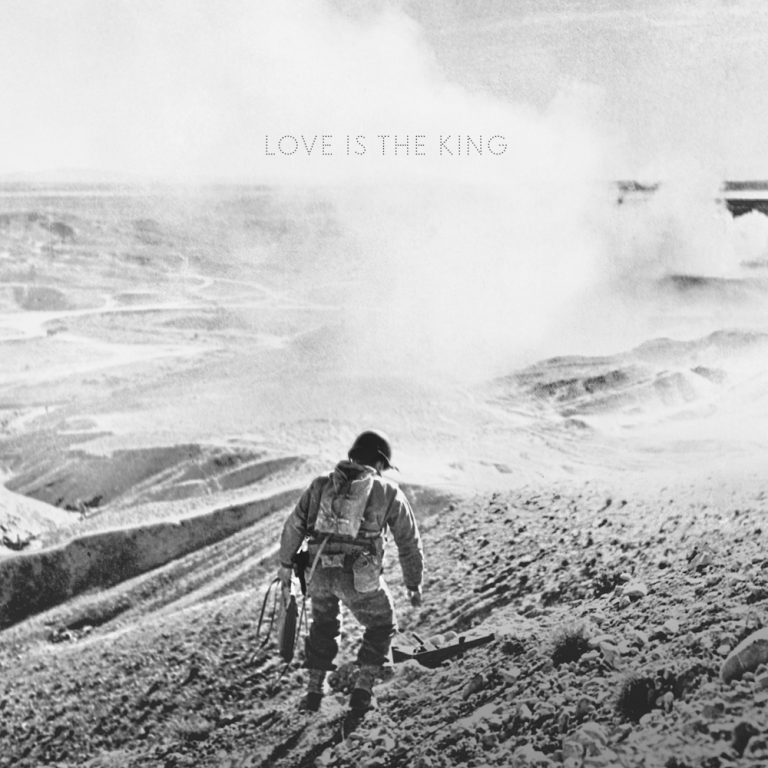One of the most interesting realisations of 2020 was that we’ve now seen more “quarantine albums” full of introspection than we’ve had albums reflecting on the political machinations of Trump (or Johnson). Maybe that’s due to the nature of a musician’s lifestyle: as much as they characterise themselves as lonesome poets, musicians are inherently dependent on social interaction. Touring, recording, rehearsing or just attending shows and jam sessions is not only of value, but greatly influences the personal language of their art. Disrupting that cycle leads to a shift of focus, yet thanks to the countless possibilities of social media and elaborate communication apps, it also allows for surprising collaborative efforts and seamless recording sessions. In 2020, FKA Twigs can self-isolate, yet also home-record an entire album with El Guincho within a few weeks.
In contrast to this virtual cosmopolitanism, it’s almost shocking to hear that Jeff Tweedy decided to record an album with no one but his sons Spencer and Sammy, produced by Wilco and Real Estate collaborator Tom Schick. There’s no surprise guests, no unlikely producer, no genre left-turn.
In a way, that’s not unexpected. Tweedy, the formerly perfectionist frontman of alt-Country giants Wilco, spent the last two years releasing twin albums Warm and Warmer, both of them throwbacks to an era of the 1970s when Neil Young and Bob Dylan could release painterly albums full of modest Americana that stood out thanks to brilliant songwriting and masterful musicianship. It’s hard now for albums like that to compete with the post-humanism of the electronic pop era and often wilfully written off as ‘dad rock’. Yet the irony of that stance is that there’s something inherently reassuring in the familiar. It’s like comfort food, or – uh – an old cardigan under someone’s bed.
There’s no need to characterise Love Is the King as something that it’s not. For 11 songs and 39 minutes, Tweedy creates a landscape of autumnal beauty and warm layers of guitars, which oscillate between experimental, almost distorted ambience and clear, saccharine folk melodies. There’s a few straight country tracks here, but for the most part, it’s minimalist genre-revisionism. Again: nothing unexpected. But songs like “Half-Asleep”, with its flair of a Jim O’Rourke-produced John Lennon track, or the instantly memorable single “Gwendolyn”, are so incredibly clever in their emotional rhetoric and use of wailing guitars that there’s no denying their quality and charms. Considering that there are many songwriters just as acclaimed as Tweedy who regularly fail when they’re attempting to “undress” their songs, leaving skeletons where they’d hoped for glowing skin, it’s refreshing to find a track like “Bad Day Lately”, which, in its fragility, reveals a melancholic beauty that connects both with the imaginations of quarantine experiences, lone riders and urban bar dwellers.
So what’s the secret? As stated earlier, Tweedy has mastered a painterly quality within his art-folk songwriting. On the outside, his songs seem scaled-down and often naturalist – naked. But then he adds individual aspects, such as a distorted guitar improvisation or a barely audible organ, which add form and colour to the blank spaces occupied by the reverb of his voice or acoustic rhythm guitar. “Natural Disaster” could have been a bland country-pop song, but once electronic guitar notes start dancing around Tweedy’s Johnny Cash impersonation, there’s a new dynamic to the formula, something more in line with Television or Talking Heads. On title track “Love Is The King”, the secret star is a barely audible bass, which provides a contrast to the lead melody, until finally electronic guitar improvisation cuts in and carries the song away. It’s those elements that would have elevated Beck’s One Foot in the Grave to a classic, that render Tweedy’s craft into art-pop.
Yet, Wilco are sometimes very palpably absent. The drumming here – while fine – lacks the genius of Glenn Kotche, and the guitar-duo of Cline and Sansone would have likely added more gravitas and interplay to the individual parts. Their absence becomes all the more relevant in comparison to last year’s underappreciated Ode to Joy, which saw Wilco deliver their best material since The Whole Love.
So, in the end, Love Is The King is a series of family snapshots, poetic diary entries of compassion; a meditation on what it means to retreat with those we can rely on when we need them. In that, it’s a comforting hug in times of no touching. Hey, all will be well. We’ll get through this. Maybe that makes me sound like a dad, but really, there’s worse things I could be.

